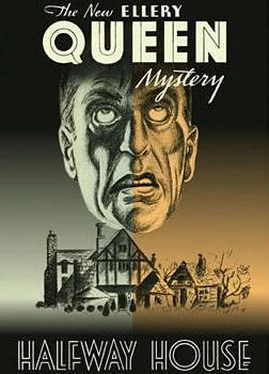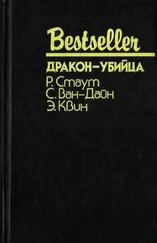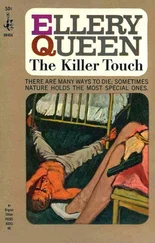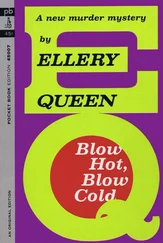“Now. He has already sent two telegrams, one to Bill Angell, one to Andrea, both worded identically and asking the addressees to meet him in this place at nine tonight and giving minute instructions about how to find it. In the afternoon he has supplemented his telegram to Bill by telephoning Bill at his Philadelphia office, again urging him to be present at the rendezvous tonight.
“What does he do at five? He leaves his office, goes down to where he has parked the Packard near his New York office, and drives off to the Holland Tunnel bound for Trenton. In the car he has the dummy sample-case of his Wilson personality and the wrapped birthday gift he has purchased in Wanamaker’s Philadelphia yesterday intended for his brother-in-law. He reaches this shack at seven o’clock, runs up the side drive. It is still raining. A little later the rain stops. Meanwhile, the rain has washed away all traces of former footprints and tire marks, leaving, as it were, virgin ground.”
Senator Frueh muttered something that sounded like “tiresome old wives’ tale,” but promptly stopped as the old millionaire glared at him.
“Pipe down, Senator,” snapped Ella Amity. “This isn’t Congress, you know. Go on, Ellery. You fascinate me.”
“Gimball is in this room,” said Ellery coolly, as if there had been no interruption. “He wanders about, puts the gift on the mantel, pauses at the window to scan the sky. He sees the sky has cleared. It is still early; he is restless, worried; he needs something to take his mind off the ordeal of confession to come. So he goes out by the side door and trudges down the path to the boathouse, leaving his footprints in the hardening mud. He hauls out his sailboat and scuds off down the Delaware to quiet his nerves. It is seven-fifteen.”
They were sitting forward gripping the arms of their chairs, those who sat, and those who stood clutched the backs of the chairs. “To this point I have described what probably occured,” Ellery went on, “because the description concerned itself with a man dead and buried. But now we come to the living. Andrea, I shall need your assistance. It is eight o’clock. You have just driven up to the shack and parked the Cadillac roadster you borrowed from Mr. Jones, parked it in the main driveway facing toward Camden. Will you re-enact what you did?”
Andrea rose without a word and went to the door. She was pale now with a cold pallor that made her fresh young face ghastly. “Shall I... go outside?”
“No, no. You’ve just opened the door, let us say. Pretend that it’s open.”
“The lamp,” she whispered, “was off.”
Ellery moved. The room went black. From the darkness his voice came, disembodied, sending a chill up their spines. “It was not so dark as this. There was still some light outdoors. Go on, Andrea!”
They heard her moving slowly forward toward the table. “I–I looked in. The room was empty. Of course, I could see, although it was getting dark here. I went to the table and switched on the lamp — this way.”
The light clicked on; they saw her standing by the table, face averted, hand on the chain under the cheap shade. Then her hand fell. She stepped back, looked around at the fireplace, the clothes-rack, the dingy crumbling walls. She glanced at her wrist. Then she turned and went to the door again. “That’s all I did — then,” she said, again in a whisper.
“End of Scene I. Thank you; you may sit down now.” She obeyed. “Andrea realizes that she is an hour early; she goes out, gets into the roadster, drives off toward Camden, probably onto Duck Island, for what she has testified was an hour’s spin. The criminal,” said Ellery curtly, “arrives at eight-fifteen.” He paused, and the silence was unbearable. Their features might have been carved out of the living rock of an age-old convulsion of nature. The night, the sullen lowly room, the grisly whispers of outdoors, were twisted about their consciousness, not to be shaken off.
“The criminal has driven up at eight-fifteen from the direction of Camden in the Ford coupé she has stolen from Lucy Wilson’s garage in Fairmount Park — no matter when. She is outside now. She steps carefully onto the stone ledge outside the door. She opens it, comes in swiftly, closes it again, whirls about, prepared for—”
He was at the door now, acting out his recital. They followed him, fascinated. “She sees the place is empty, however. She relaxes, pushes back her veil. For a moment she is puzzled; she has expected to find her victim here. Then she realizes that he has gone off somewhere, but that he has been here: the Packard is outside, the lamp inside is lit; Gimball must be nearby. She will wait. She expects no interference; this is an isolated spot and she believes that no one in the world except herself and Gimball are aware of its relationship to Gimball. She prowls, restless. She sees the package on the mantelpiece.” He strode to the fireplace, reached up, tore away the wrappings of the package ruthlessly. The gift-set lay revealed. Ellery took the bundle to the table, bent over it. “Needless to say,” he murmured, “she wore protecting gloves.” He lifted out the still blood-stained paper-cutter, the little card, stained now by the many fingers that had handled it.
“Observe what chance has thrown into the path of this woman,” he said sharply, straightening up. “She finds the card, indicating that the desk-set is a gift from Lucy Wilson and Joseph Wilson. She has stolen Lucy Wilson’s car to frame her for the crime, but here, at hand, is something even better: a weapon identifiable with Lucy Wilson! Whatever weapon the criminal has intended to use, she discards it at once. She will use the paper-cutter. It will be another and stronger link to Lucy Wilson. She does not know, of course, how fortunate she is, for it is quite impossible that she should have known that Lucy Wilson’s fingerprints were on the knife. At any rate, she puts the package back on the mantel. But the knife is not with it; the knife is in her hand.”
The society woman made a moaning sound through stiff lips. She was evidently unconscious of what she had done, for she continued to glare at Ellery with an unwavering glassiness. Ellery grasped the bloody knife firmly, stole toward the side door. “She hears footsteps, coming from the river-side. It must be her victim. She stands behind this door, knife raised. The door opens, concealing her figure. Joseph Kent Gimball stands there, back from his sail on the river; he scrapes the mud off his shoes on the doorsill; he closes the door and walks in, unconscious of the menace at his back. The time is a little past eight-thirty, a matter of seconds or minutes.” Ellery suddenly lunged. “She makes a sound in moving. Gimball, behind the table, whirls. For an instant they see each other; she has turned down her veil again, but he sees her figure, her clothes. Then the knife plunges into his heart and he falls — apparently dead.”
Amazingly, Andrea’s mother began to sob. Still glaring at Ellery. The tears rolled slowly down her faintly lined cheeks. She sobbed almost indignantly.
“What happens?” Ellery whispered. “The knife is in Gimball’s heart. Only flight is necessary to complete the crime. Then—”
“I came back,” said Andrea in a low voice.
“Good God,” croaked Finch. “I thought you said, Andrea—”
“Please!” snapped Ellery. “Never mind what you thought. There has been a great deal of misrepresentation going on through which we’ve had to stumble to reach the truth. Andrea! Go through it for us.”
He ran toward the front door, took up his stand beside it.
“The criminal hears the sound of the returning car. Someone is coming. A miscalculation! She hopes the car will pass; instead, it stops outside door. She still has time to escape by way of the side door. But she wants to drive that Ford back to Philadelphia. She can handle herself. She crouches behind the door...”
Читать дальше












